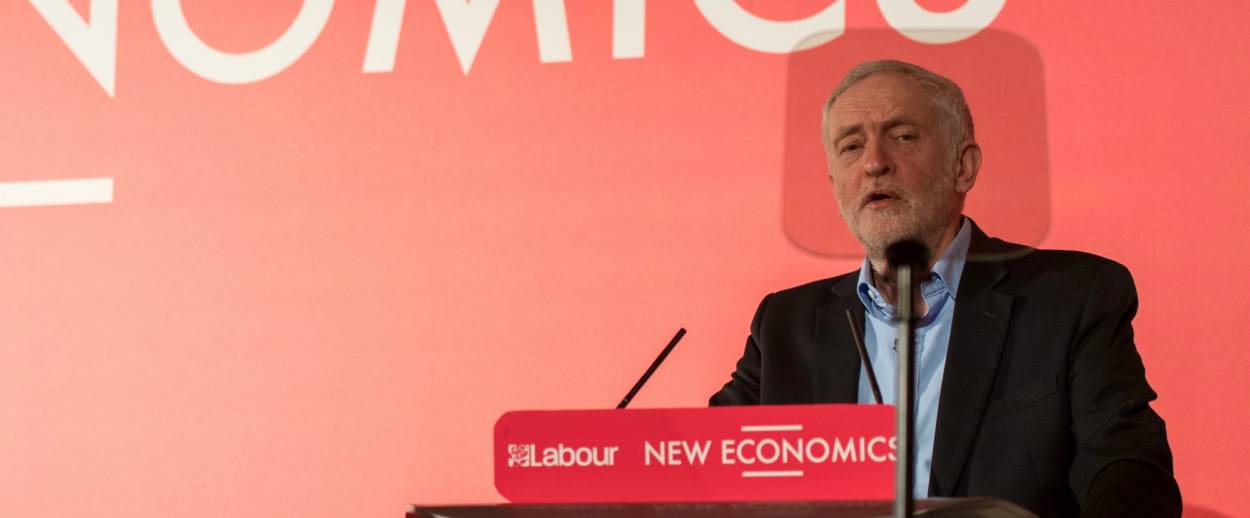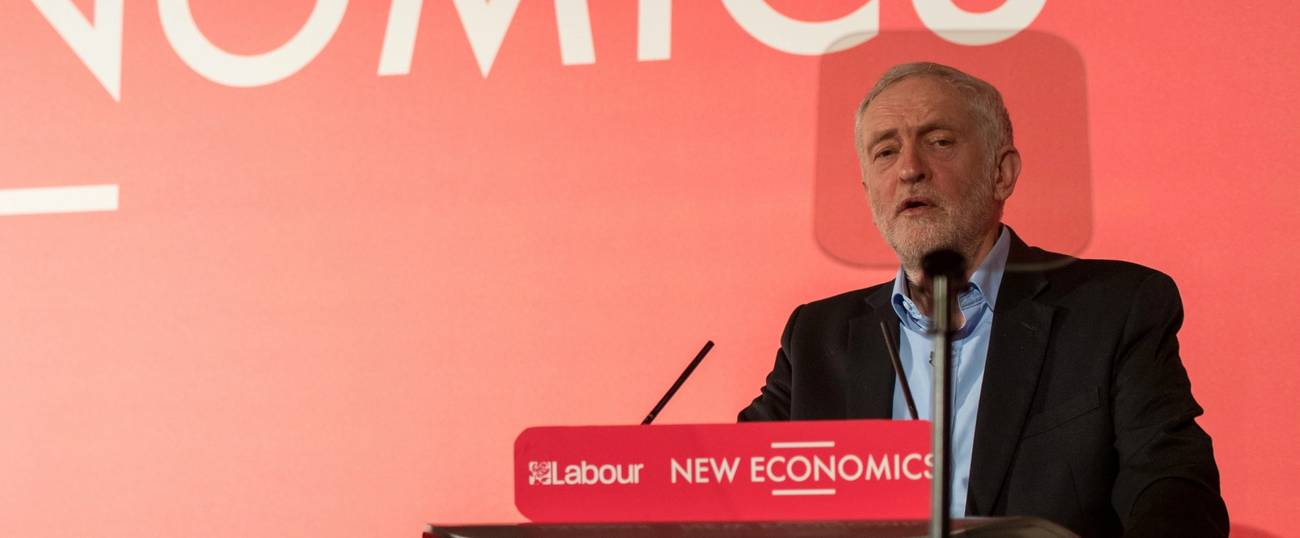Another Labour Party Leader Expelled for Anti-Semitism
This time it was Tony Greenstein, who had a nasty habit of calling people “Zios.” But what’s next for the troubled party?




Well, they had to start somewhere. Last week, Britain’s Labour Party announced the expulsion of Tony Greenstein, a Brighton-based party activist with an alleged history of “noxious behavior” and a habit for using the term “Zios.” Greenstein, who is a founding member of the Palestine Solidarity Campaign, must have suspected this was coming. Last March, Electronic Intifada published an essay in which Greenstein alleged that the Campaign Against Anti-Semitism, a leading British watchdog group founded after a spike in anti-Semitic incidents spurred by the 2014 Gaza conflict, was in fact “a campaign against Palestinians.” In a long blog post published on February 19th, Greenstein, who was suspended from the party nearly two years ago, evinces little surprise at becoming “one of the major casualties of the false anti-Semitism witch hunt.” Greenstein, who also co-founded a group called Labour Against the Witch-Hunt, seems to have viewed the party’s so-far lethargic efforts at purging anti-Semitism from its ranks as an anti-Palestinian crackdown that would eventually come his way.
Greenstein’s expulsion resolves one of several still-simmering anti-Semitism-related cases within the Jeremy Corbyn-led Labour party. Greenstein was an especially low-pressure call for Labour’s National Constitutional Committee, the organ that decides on whether activists have violated the party’s rules: Greenstein is a radical organizer who only joined Labour in mid-2015, around the time Corbyn launched his bid for control of the party. Unlike alleged anti-Semites such as former London mayor Ken Livingstone and one-time leading pro-Corbyn activist Jackie Walker, Greenstein is a peripheral figure in Britain’s main opposition party. Nevertheless, he is “one of the most notorious Jewish anti-Zionists,” according to Britain’s Jewish News, and his case could help demonstrate the boundaries of what Corbyn’s party now considers to be acceptable rhetoric regarding Israel and Jews.
For some observers, the determination that frequent use of “Zios” as a pejorative is against the party’s rules probably comes too late for encouragement. After all, Jeremy Corbyn has been consorting with anti-Semites for much of his four decades in politics, something he hasn’t really addressed in public—the Labour leader infamously refused to grant interviews to Jewish media organizations in the run-up to last year’s general election. Since becoming party leader, Corbyn commissioned an allegedly softball report addressing anti-Semitism in the party only to elevate its author to his shadow cabinet. It’s tempting to see Greenstein’s expulsion as a fairly superficial move considering the party’s overall direction and leadership.
But Greenstein’s expulsion is the kind of event that could hint at a change in direction, and some are seeing it as a long-awaited sign that Labour is finally getting serious about excising its anti-Semites. Justin Cohen of the Jewish News tweeted that Greenstein’s expulsion was “a huge moment in the party’s fight against anti-Semitism,” partly because it established that frequent use of “Zios” would be a breach of the party’s rules. But in Cohen’s view, Greenstein’s removal would “count for little” if there’s no follow through.
Greenstein was far from the most prominent of the party’s alleged anti-Semites. Former London mayor Ken Livingstone repeatedly insisted on close ideological and operational links between the Nazis and the Zionist movement, a form of implicit holocaust revisionism that earned him a suspension from the party. Then there’s Jackie Walker, former head of the influential pro-Corbyn group Momentum, who was suspended from the party for accusing Jews of controlling the transatlantic slave trade, re-instated, and then suspended again for questioning the observance of Holocaust Memorial Day. And of course there’s the party leader himself: Corbyn’s amassed several decades’-worth of links to a diverse range of verified Jew-haters and earned some $27,000 for hosting shows on Iranian state television.
Most British voters don’t seem to care much about any of that. Corbyn’s Labour party gained 30 seats in last year’s general elections, and polls suggest that the party stands a good chance of prevailing if an election were held this year—which is a distinct possibility, thanks in part to the party’s success the last time around. Greenstein’s expulsion signals that Labour is finally realizing it has to solve its anti-Semitism problem in order to present itself as a realistic alternative to Theresa May’s often-shambolic and deeply unpopular Conservative-led government. But Greenstein’s expulsion doesn’t answer the still-lingering question of just how big of a problem the party thinks it has, or how far it’s really willing to go in solving it.
Armin Rosen is a staff writer for Tablet Magazine.